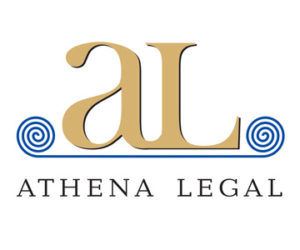Trade between India and South Korea has seen significant growth in recent years due to the beneficial policies implemented by both countries. This growth in trade and commerce has seen a corresponding rise in disputes and disagreements between businesses leading to the use of arbitration as the primary method of dispute resolution. Invoking arbitration and getting an arbitral award in one’s favour after a long and hard fight is at times only half of the battle. The main challenge is the enforcement of the arbitral award.

Partner
Athena Legal
Enforcement of an arbitral award is dealt with in the Convention on the Recognition and Enforcement of Foreign Arbitral Awards 1958 (New York Convention). India recognizes South Korea as one of the 54 countries notified as a convention country whose arbitral awards can be enforced.
The procedure for enforcement under domestic law is relatively simple and is covered by the Arbitration and Conciliation Act, 1996 (act), read with the Civil Procedure Code 1908 (CPC). An arbitration award may be one of two kinds, an award from a convention country, or an award from a non-convention country. Both types of awards are recognized and enforceable in India. This was dealt with by the Supreme Court in Bhatia International Ltd v Bulk Trading SA (2002), which held that an arbitral award from a non-convention country would be treated as a domestic arbitral award. The provisions of part I of the act apply to awards from non-convention countries and the provisions of part II are applicable to awards from convention countries.

Principal associate
Athena Legal
The usual procedure for obtaining recognition of a foreign arbitral award is by making an application for recognition and enforcement to any competent court. This is normally the commercial division, recognized under the Commercial Courts, Commercial Division and Commercial Appellate Division of High Courts Act, 2015, of any high court that has jurisdiction over the subject matter of the award or over the assets of the party against whom the award is to be enforced. Commercial courts follow strict timelines in deciding cases and do not operate at the usual slow pace of other courts. Section 47 of the act prescribes the documentation that must be submitted with the application for enforcement. Unlike domestic awards, foreign awards are not required to be stamped and registered as decided by the Supreme Court in M/s Shriram EPC Limited v Rioglass Solar SA (2018), and followed by various high courts from time to time thereafter.
- Once such an application is made, the primary role of the court is to decide whether any of the grounds for challenge as laid down under section 34, for domestic and non-convention country awards, or section 48, for convention country awards, apply. Thus making the arbitral award liable to be refused or set aside. These grounds are that:
- At least one of the parties to the arbitration agreement was acting under incapacity;
- The arbitration agreement was not in accordance with the law of the jurisdiction that the parties agreed governed it, or under the law of the country where the award was made;
- There was a failure to give proper notice of the appointment of the arbitrator or of the arbitral proceedings, or the party against whom the award was rendered was otherwise unable to present their case;
- The award was not in accordance with the agreement or a submission to arbitration;
- The award decided matters beyond the scope of the arbitration;
- The composition of the arbitral authority, or the arbitral procedure was not in accordance with the agreement;
- The composition of arbitral authority, or the arbitral procedure was not in accordance with the law of the country where the arbitration took place;
- The award has not yet become binding on the parties, or has been set aside or suspended by a competent authority of the country in which or under the law of which the award was made;
- The subject matter of the dispute is not capable of settlement by arbitration under Indian law, and
- Enforcement of the award would be contrary to public policy.
Indian courts can only review the award and cannot examine the merits of the award. The grounds for challenge cannot be expanded by the courts. After the court has concluded its review it can proceed with the enforcement of the award by deeming it a valid decree of the court, in accordance with the provisions of the CPC.
Because of these provisions, it is beneficial for South Korean businesses in India to have recourse to international arbitration in case of disputes with an Indian partner.
Simranjeet Singh is a partner and Rohan Ahuja is a principal associate at Athena Legal.

37, First Floor, Link Road
Lajpat Nagar-III,
New Delhi – 110024
India
Contact details
Tel : 91 11 4200 4400
Email: correspondence@athenalegal.in
Website: www.athenalegal.in




























